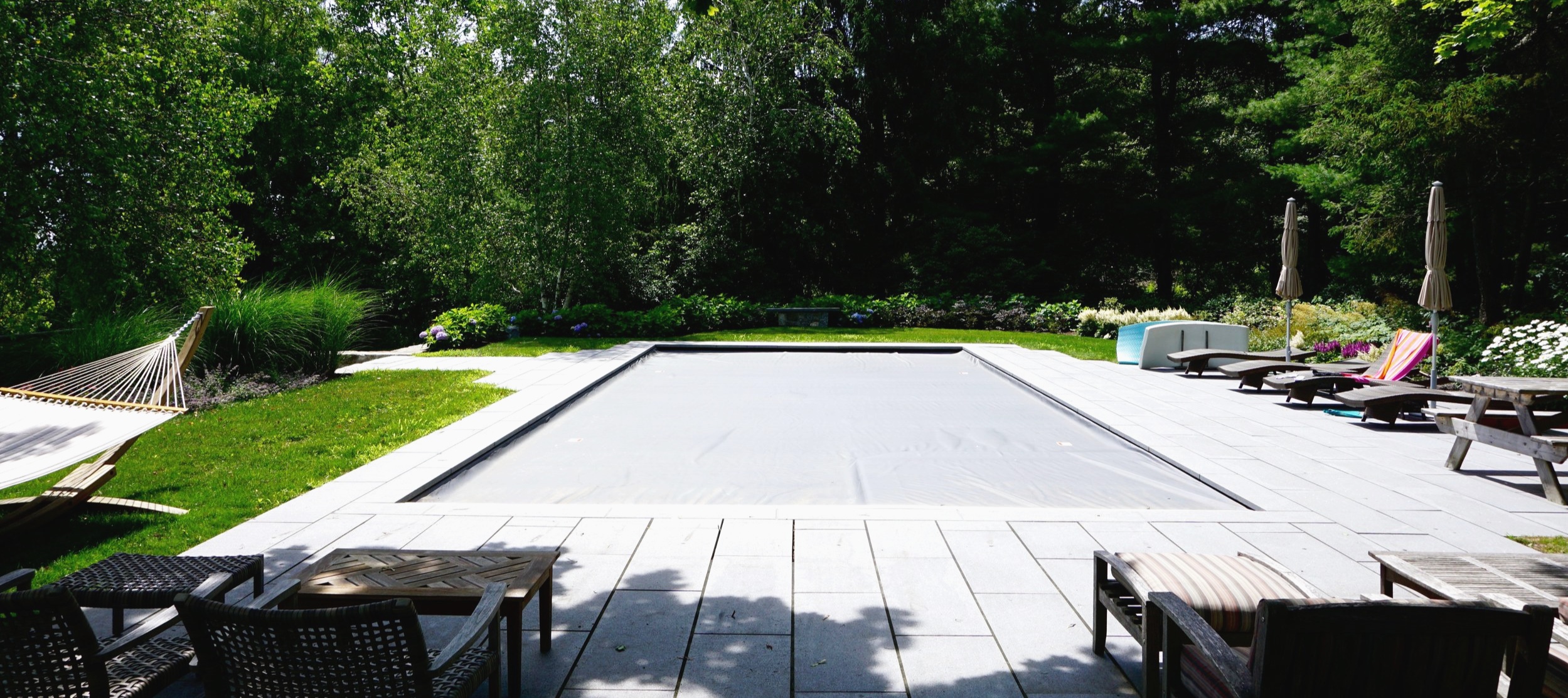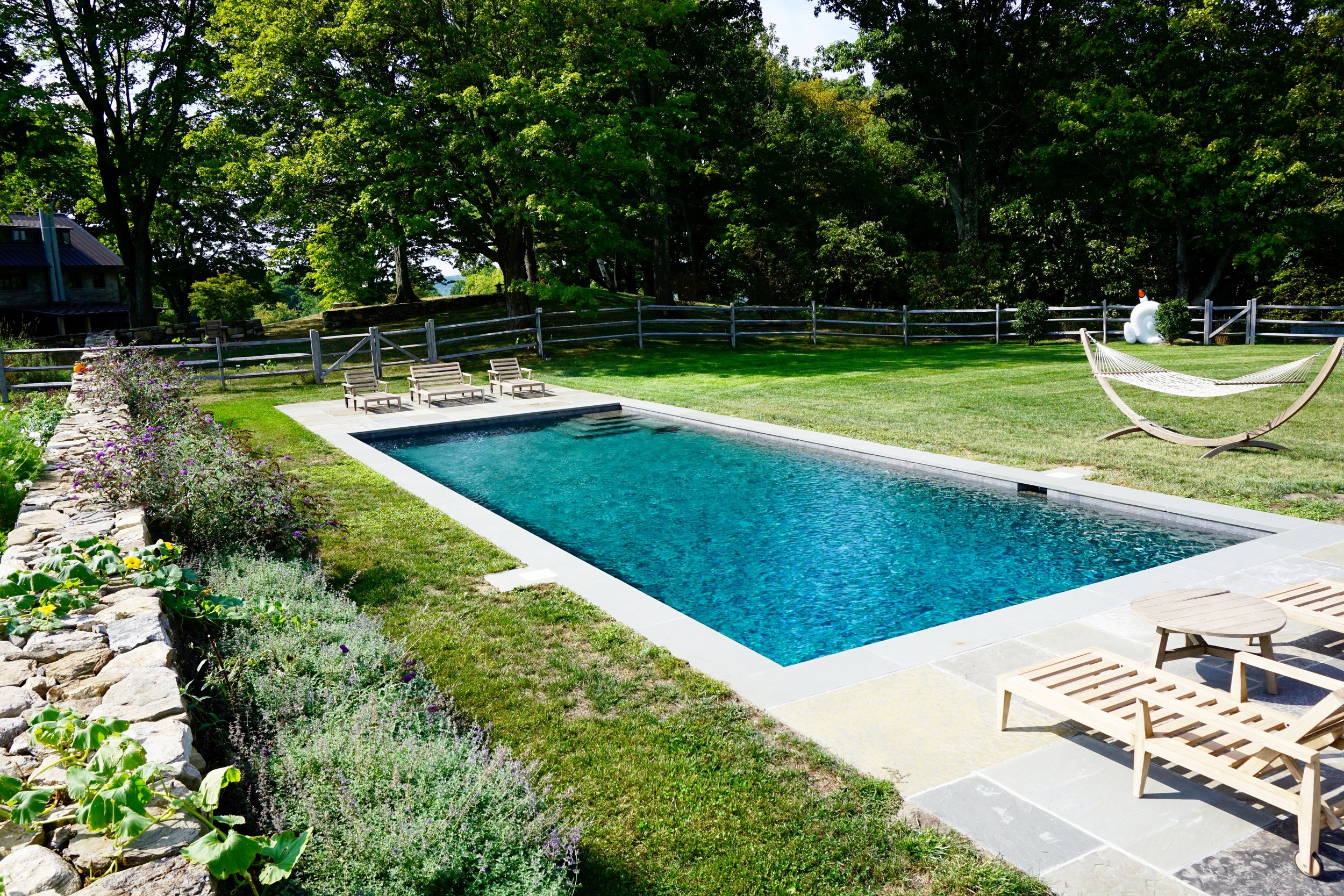Adding an automatic cover to your swimming pool project is a big decision. While guaranteed to increase the cost of your pool installation, an automatic pool cover delivers many positives to consider. As we’ve discovered first hand through our 35+ years of installing gunite swimming pools, an automatic pool cover is a necessity for some, and of little interest to others.
Here are a few of the Pros & Cons of an Automatic Pool Cover:
PRO - Safety, safety, safety. An automatic pool cover is a highly effective safety measure. In fact, as of October 2022, the state of Connecticut allows an automatic pool cover to serve as a barrier of entry per code (read Automatic Pool Covers: New Connecticut Rules and Requirements). Thus a fence is no longer needed around your pool, if you have an automatic cover. Once the pool is closed via a key or code, entry to the pool is shut. The covers are known be very strong, holding up to 12 adults, although we don’t recommend you test that claim out.
CON - An automatic pool cover adds anywhere from $30,000 to $40,000 to the project cost. The cover is intricate, involving a recessed track that is installed between the tile and coping, a cemebt cover box at the deep-end of the pool, and a stainless steel cover motor. It is also recommended to have the cover serviced once a year, which can cost $300 - $600 annually.
PRO - An automatic pool cover limits heat loss and the water evaporation. Here in Connecticut, especially during the months of May, June, and September, we experience significant temperature swings. After an 85 degree day, we often feel the chill of a 50-65 degree evening. This significant temperature swing leads to a large loss of heat, and a high evaporation rate. An automatic cover acts as a passive solar blanket, trapping in heat and reducing evaporation. You will also have to use your heater much less, saving on heating costs.
A pool without an automatic pool cover
CON - A pump with an attached garden hose must always be kept on top of the pool cover when the pool is closed. As rainwater collects on the non-permeable pool cover, a pump must be present to discharge the water to avoid having too much weight on the cover.
PRO - When your pool is shut, swimming is not possible. Since all automatic pool covers are opened and closed via a keyed switch or code, when you shut your cover, the pool is closed. There’s no animals, no grass or leaves, and no neighbors swimming in your pool. As the majority of our clients are weekenders, the peace of mind of having the pool shut is a major deciding factor.
CON - Whether Salt or Chlorine, chemicals get trapped in. Since the pool is closed the majority of the time, sanitizers such as Chlorine do not dissipate naturally. Therefore, if you have an automatic cover, it is suggested keeping chemical levels toward the lower end of the spectrum.
As with any major decision involving your swimming pool project, there are pros and cons to assess. The question of whether to include an automatic swimming pool cover will be based on your budget, your desired safety level and fencing preferences, and the several other deciding factors listed in this post. As always, if you have any questions, please contact us.
Thank you for reading, and as always, swim safely.










